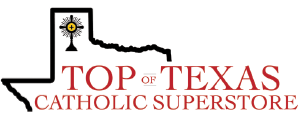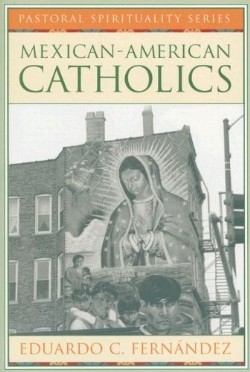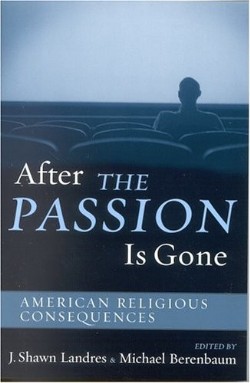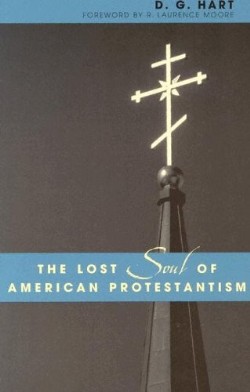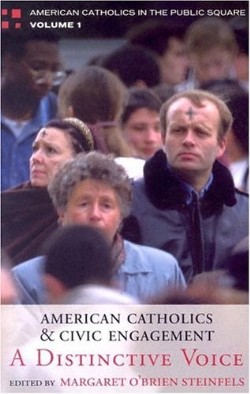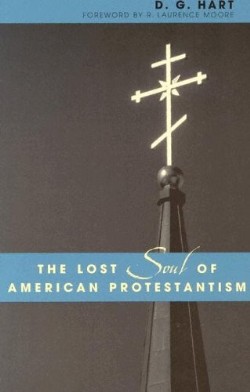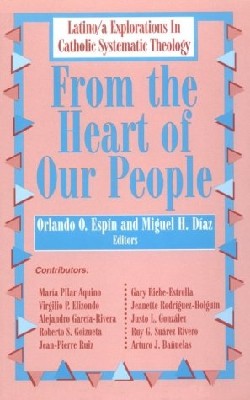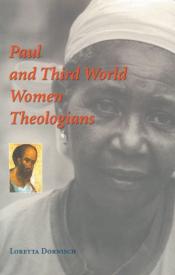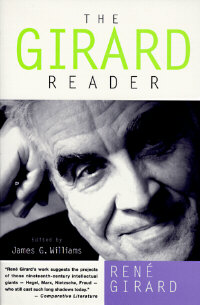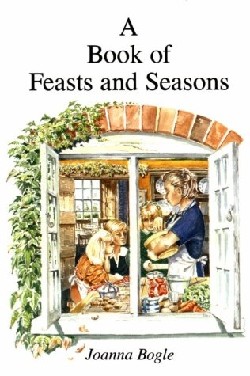Manners and Customs
Showing all 9 resultsSorted by latest
-
After The Passion Is Gone
$50.00Add to cartIntroduction
J. Shawn Landres And Michael Berenbaum
Part One: The Context Of The PassionIntroduction To Part One
Almost A Culture War: The Making Of The Passion Controversy
Mark Silk (Trinity College)
Passionate Blogging: Interfaith Controversy And The Internet
William J. Cork (Catholic Diocese Of Galveston-Houston)
Living In The World, But Not Of The World: Understanding Evangelical Support For The Passion Of The Christ
Leslie Smith (UCSB)
The Passion Paradox: Signposts On The Road Toward Mormon Protestantization
Eric Samuelsen (BYU)
Is It Finished? The Passion Of The Christ And The Fault Lines In American Christianity
Julie Ingersoll (University Of North Florida)
Part Two: The Passion In ContextIntroduction To Part Two
The Journey Of The Passion Play From Medieval Piety To Contemporary Spirituality
Karen Jo Torjesen (Claremont Graduate University)
The Gibson Code?
Lorenzo Albacete (St. Joseph Seminary, Yonkers)
“But Is It Art?”: A Prelude To Criticism Of Mel Gibson’s The Passion Of The Christ
Robert A. Faggen (Claremont McKenna College)
Antisemitism Without Erasure: Sacred Texts And Their Contemporary Interpretations
Gary L. Gilbert (Claremont McKenna College)
Theologizing The Death Of Jesus, Gibson’s The Passion, And Christian Identity
Jeffrey S. Siker (Loyola Marymount University)
Manly Pain And Motherly Love: Mel Gibson’s Big Picture
David Morgan (Valparaiso University)
Imago Christi: Aesthetic And Theological Issues In Jesus Films By Pasolini, Scorsese, And Gibson
Lloyd Baugh, SJ (Pontifical Gregorian University, Rome)
Part Three: Jews And Christians: Reframing The DialogueIntroduction To Part Three
Theological Bulimia: Christianity And Its Dejudaization
Susannah Heschel (Dartmouth College)
A March Of Passion, Or, How I Came To Terms With A Film I Wasn’t Supposed To Like
Stephen R. Haynes (Rhodes College)
The Exposed Fault Line
Richard L. Rubenstein (University Of Bridgeport)
Crucifying Jesus: Antisemitism And The Passion Story
Stephen T. Davis (Claremont McKenna College)
Five Introspective Challenges
David M. Elcott (American Jewish Committee)
No Crucifixion = No Holocaust: Post-Holocaust Reflections On The Passion Of The Christ
John K. Roth (Claremont McKenna College)
The Passionate Encounter: The Ethics Of Affirming Your Faith In A Multi-Religious World
Elliot N. Dorff (University Of Judaism)
Reframing Difference: Evangelicals, Scripture, AnAdditional Info
Mel Gibson’s The Passion of the Christ topped box office charts and changed the American religious conversation. The controversies it raised remain unsettled. In After The Passion Is Gone: American Religious Consequences, leading scholars of religion and theology ask what Gibson’s film and the resulting controversy reveal about Christians, Jews, and the possibilities of interreligious dialogue in the United States. Landres and Berenbaum’s collection moves beyond questions of whether or not the film was faithful to the gospels, too violent, or antisemitic and explores why the debate focused on these issues but not others. The public discussion of The Passion shed light on a wide range of American attitudes–evangelical Protestant, mainline Protestant, Roman Catholic, and Jewish–about media and faith, politics and history, Jesus and Judaism, fundamentalism and victimhood. After The Passion Is Gone takes a unique view of vital points in Christian-Jewish relations and contemporary American religion -
Lost Soul Of American Protestantism
$50.00Add to cartForeword
R. Laurence Moore
The American Way Of FaithConfessional Protestantism
Defining Conservatism Down
The Intolerance Of Presbyterian Creeds
The Sectarianism Of Reformed Polity
The Irrelevance Of Luthern Liturgy
Conclusion: Confessional Protestantism And The Making Of Hyphenated Americans
Additional Info
In The Lost Soul of American Protestantism, D. G. Hart examines the historical origins of the idea that faith must be socially useful in order to be valuable. Through specific episodes in Presbyterian, Lutheran, and Reformed history, Hart presents a neglected form of Protestantism–confessionalism–as an alternative to prevailing religious theory. He explains that, unlike evangelical and mainline Protestants who emphasize faith’s role in solving social and personal problems, confessional Protestants locate Christianity’s significance in the creeds, ministry, and rituals of the church.Although critics have accused confessionalism of encouraging social apathy, Hart deftly argues that this form of Protestantism has much to contribute to current discussions on the role of religion in American public life, since confessionalism refuses to confuse the well-being of the nation with that of the church. The history of confessional Protestantism suggests that contrary to the legacy of revivalism, faith may be most vital and influential when less directly relevant to everyday problems, whether personal or social.
Clear and engaging, D. G Hart’s groundbreaking study is essential reading for everyone exploring the intersection of religion and daily life.
-
American Catholics And Civic Engagement
$144.00Add to cartIntroduction
Peter Steinfels
Part 1: Catholic Thought In The American ContextThe Common Good & Catholic Social Thought
John A. Coleman
Pluralism & The Common Good: A Response
Jane Mansbridge
Catholic Social Thought & The American Experience
Stephen J. Pope
Contending With Liberalism
William A. Galston
Catholics And The Liberal Tradition
Michael Lacey & William M. Shea
Part 2: Catholic Institutions In The American Public SquareThe Catholic Parish In The Public Square
Philip J. Murnion
What Do State Catholic Conferences Do?
William Bole
The Limits Of Coalitions And Compromises: The California State Catholic Conference
Edward E. Dolejsi
Catholic Health Care & The Challenge Of Civic Society
Clarke E. Cochrane
Part 3: Catholics In The Public Square: AutobiographiesPro-life, Pro-family, Pro-poor
Mary Jo Bane
State House Politician
David Carlin
On The Beat In The South Bronx And Central America
David Gonzalez
Politics And Polling
Dotty Lynch
A Journalist’s Calling
Don Wycliff
Look For The Real Story
Paul Moses
Family, Faith And Union
Kirk Adams
The Workers’ Worker
John J. Sweeney
Family, Good Fortune And Stewardship
Thomas J. Donnelly
God Deals With Me Through My Clients
W. Shepherdson Abell
Part 4: Catholics In The Voting BoothHow Catholic Is The Catholic Vote?
David C. Leege & Paul D. Mueller
There Is No Catholic Vote-And It’s Important
E.J. Dionne, Jr.
Catholic Republicans
Kate O’Beirne
Communitarian Lite
William BoleAdditional Info
Sheed & Ward, in partnership with the Commonweal Foundation and with funding from the Pew Charitable Trust, proudly presents the first of two volumes in a groundbreaking series called American Catholics in the Public Square. The result of a three-year study sponsored by Pew aimed at understanding the contributions to U.S. civic life of the Catholic, Jewish, mainline and evangelical Protestant, African-American, Latino, and Muslim communities in the United States, the two volumes in this series gather selected essays from the Commonweal Colloquia and the joint meetings organized by the Commonweal Foundation and The Faith and Reason Institute, a conservative think tank in Washington. Participants in the Commonweal colloquia and the joint meetings–leading Catholic scholars, journalists, lawyers, business and labor leaders, novelists and poets, church administrators and lobbyists, activists, policy makers and politicians–produced approximately forty-five essays presented at ten meetings that brought together over two hundred and fifty participants. The two volumes in the American Catholics in the Public Square Series address many of the most critical issues now facing the Catholic Church in the United States by drawing from the four goals of the colloquia-to identify, assess, and critique the distinctive elements in Catholicism’s approach to civic life; to generate concrete analyses and recommendations for strengthening Catholic civic engagement; to encompass a broad spectrum of political and social views of Catholics to encourage dialogue between Catholic leaders, religious and secular media, and political thinkers; to reexamine the long-standing Catholic belief in the obligation to promote the common good and to clarify how Catholics may work better with those holding other religious or philosophical convictions toward revitalizing both the religious environment and civic participation in the American republic.This first volume, American Catholics and Civic Engagement: A Distinctive Voice, includes a general introduction by Peter Steinfels and is structured in four parts, each of which include a brief overview. Part One, Catholic Thought in the American Context, explore the fundamental concepts that underlie Catholic social thought and their relevance to American public debate and public policy-the intellectual tools with which Catholics have often participated in the public square. Part Two, Catholic Institutions in the American Public Square, reveal
-
Lost Soul Of American Protestantism
$79.00Add to cartForeword
R. Laurence Moore
The American Way Of FaithConfessional Protestantism
Defining Conservatism Down
The Intolerance Of Presbyterian Creeds
The Sectarianism Of Reformed Polity
The Irrelevance Of Luthern Liturgy
Conclusion: Confessional Protestantism And The Making Of Hyphenated Americans
Additional Info
In The Lost Soul of American Protestantism, D. G. Hart examines the historical origins of the idea that faith must be socially useful in order to be valuable. Through specific episodes in Presbyterian, Lutheran, and Reformed history, Hart presents a neglected form of Protestantism–confessionalism–as an alternative to prevailing religious theory. He explains that, unlike evangelical and mainline Protestants who emphasize faith’s role in solving social and personal problems, confessional Protestants locate Christianity’s significance in the creeds, ministry, and rituals of the church.Although critics have accused confessionalism of encouraging social apathy, Hart deftly argues that this form of Protestantism has much to contribute to current discussions on the role of religion in American public life, since confessionalism refuses to confuse the well-being of the nation with that of the church. The history of confessional Protestantism suggests that contrary to the legacy of revivalism, faith may be most vital and influential when less directly relevant to everyday problems, whether personal or social.
Clear and engaging, D. G Hart’s groundbreaking study is essential reading for everyone exploring the intersection of religion and daily life.
-
From The Heart Of Our People
$26.00Add to cartWhat would Catholic systematic theology look like if it were done from a Latino/a perspective?
From the Heart of Our People brings together leading scholars to address this question. Contributors include:
Maria Pilar Aquino, Vigilio P. Elizondo, Alejandro Garcia-Rivera, Roberto S. Goizueta, Jean-Pierre Ruiz, Orlando O. Espin, Miguel H. Diaz, Gary Riebe-Estrella, Jeannette Rodriguez-Holguin, Justo Gonzalez, Ruy G. Suarez Rivero, and Arturo Banuelas. -
Paul And Third World Women Theologians
$15.95Add to cartFor many people Paul is seen as anti-woman and male-dominating, mired in images and concepts from ancient worlds people cannot relate to. Yet why have his letters endured? Why do women in Guatemala, Nigeria, or Korea find a resonance in their experience today? Why has Paul continued to be a major resource for people wanting to live a deeply Christian life? Loretta Dornisch explores these questions by examining Paul’s letters in Paul and Third World Women Theologians.
In Paul and Third World Women Theologians Dornisch explores the themes of liberation and justice against a background of oppressing and oppressed people, whether in the first century or in the twenty-first. She pays particular attention to Third World women theologians who are emerging as voices calling for a new consciousness. These women speak for the many voiceless Third World women who are often treated as less than human and whose oppression can no longer be tolerated. -
Book Of Feasts And Seasons (Revised)
$13.95Add to cartWhen it was published in 1986 A Book of Feasts and Seasons was the first popular attempt to recapture the lost traditions surrounding our major feasts and festivals. Since then it has gone through several printings, and has become a well-loved source book all over the world. For this third edition, the author has added a wealth of new celebrations, stories, activities, and recipes. The book has been printed in a larger format to increase ease of use in home, church, and school, while wholly new illustrations enhance the text. In today’s fast moving world it gets harder and harder for people to keep in touch with their Christian history and customs. This book allows families, schools, and church groups to do just that, and to have fun while doing it. Joanna Bogle is a journalist and broadcaster.
